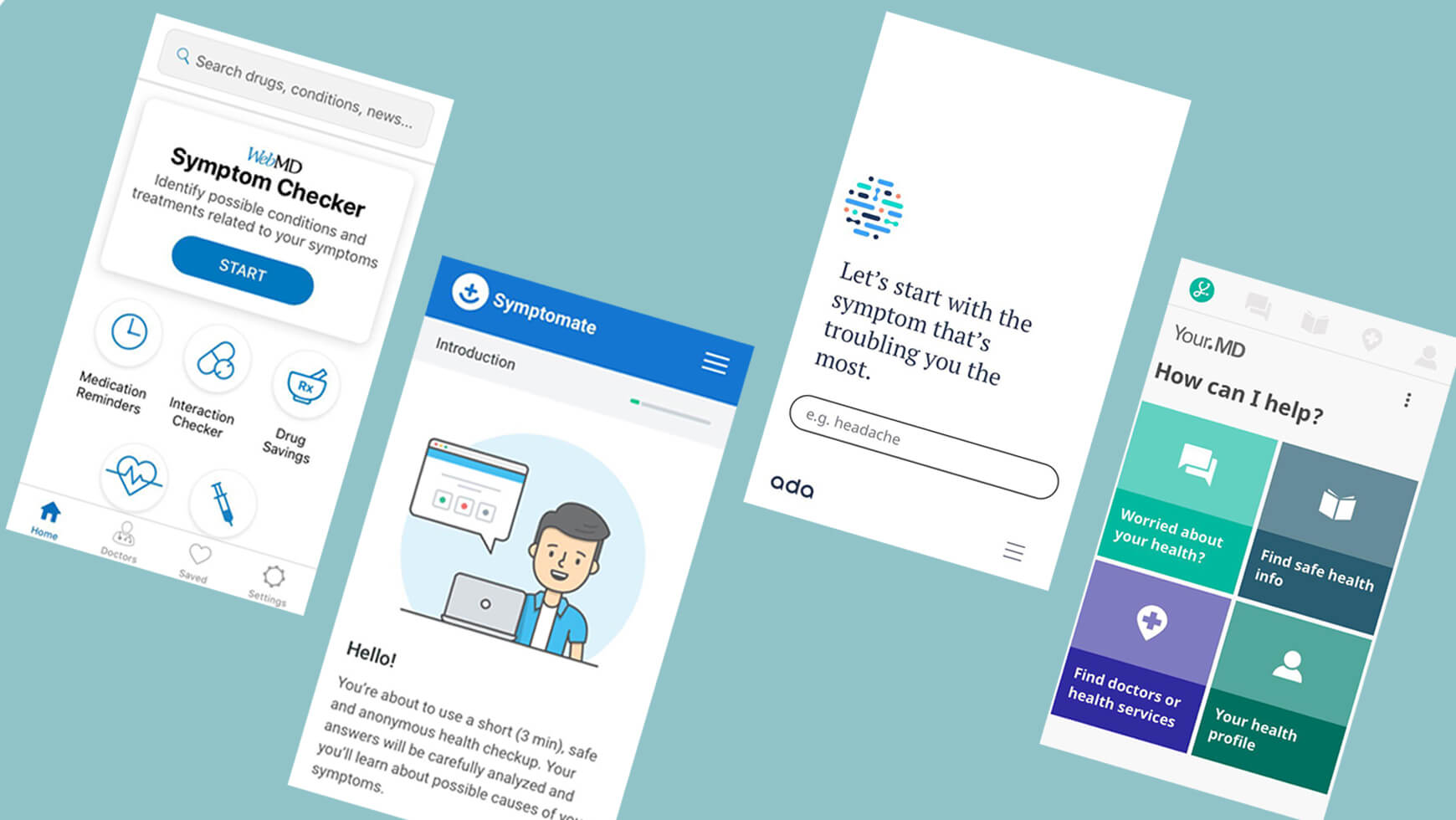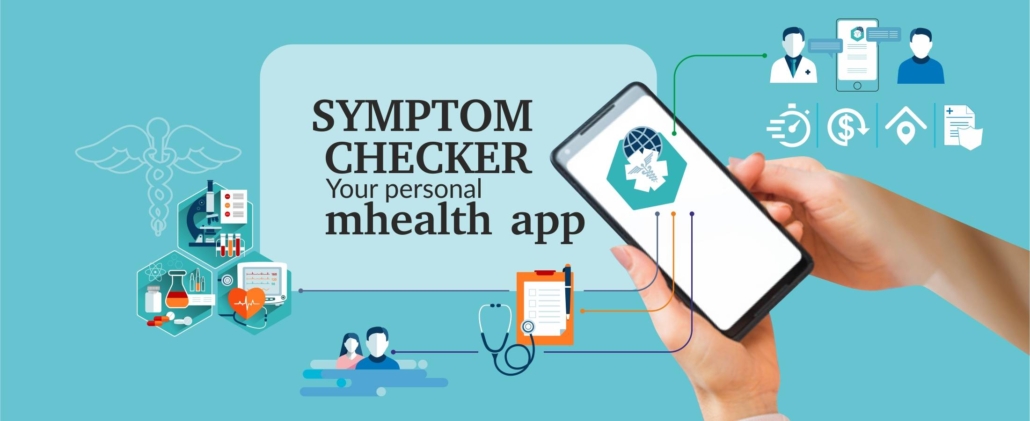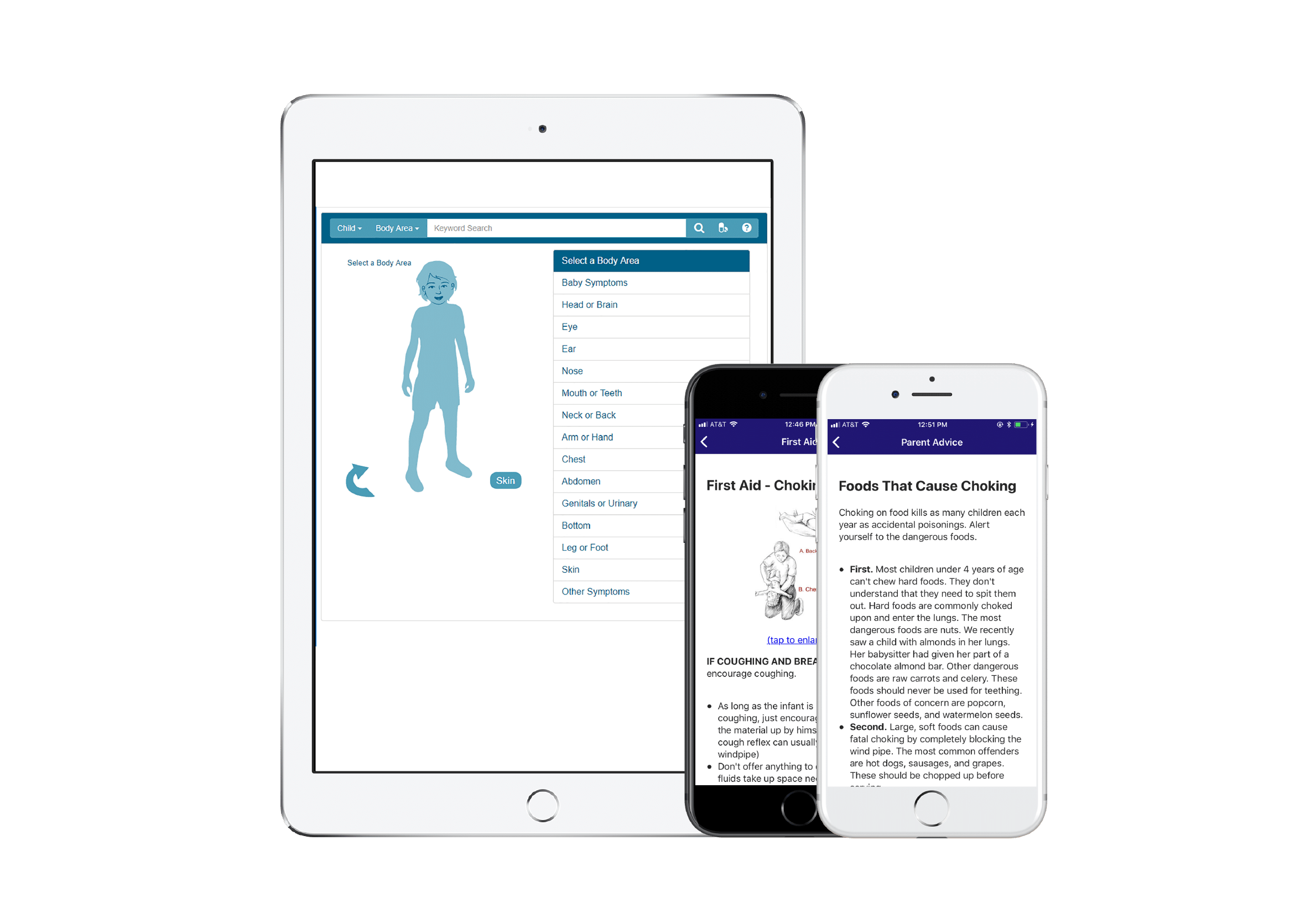Symptom checker apps have become increasingly popular as a convenient and accessible way to assess health concerns. These apps provide users with personalized symptom analysis, helping them understand their symptoms and make informed decisions about seeking medical care.
From general health apps to those focused on specific conditions, symptom checker apps offer a range of features and functionalities. They can provide symptom analysis, connect users with healthcare professionals, and even offer personalized recommendations based on individual symptoms.
Introduction

Symptom checker apps have become increasingly popular in recent years, providing individuals with a convenient and accessible way to assess their health concerns. These apps utilize advanced algorithms and medical knowledge to analyze a user’s symptoms and provide potential diagnoses and treatment options.
The prevalence of symptom checker apps is evident in the millions of downloads and active users worldwide. The ease of use and accessibility of these apps have made them a valuable tool for individuals seeking quick and initial insights into their health concerns.
Prevalence and Usage Patterns
The widespread adoption of symptom checker apps can be attributed to several factors, including the increasing prevalence of chronic conditions, the growing demand for self-care solutions, and the convenience and affordability of these apps.
- Chronic Conditions:The rise in chronic conditions, such as diabetes, heart disease, and cancer, has led to a greater need for individuals to monitor their health and manage their symptoms.
- Self-Care:Symptom checker apps empower individuals to take an active role in their healthcare by providing them with information and tools to self-assess their symptoms and make informed decisions.
- Convenience and Affordability:Symptom checker apps offer a convenient and affordable way for individuals to access healthcare information and advice without the need for an in-person visit to a healthcare provider.
Types of Symptom Checker Apps

Symptom checker apps can be broadly categorized into two main types based on their scope and functionality:
- General health symptom checkers
- Specific condition symptom checkers
General Health Symptom Checkers
General health symptom checkers are designed to provide a comprehensive assessment of a wide range of symptoms. They typically cover a broad spectrum of medical conditions, from common ailments like headaches and fever to more serious illnesses like heart disease and cancer.
These apps typically use a series of questions to gather information about your symptoms, medical history, and lifestyle. Based on your responses, the app will generate a list of potential diagnoses and recommend next steps, such as seeking medical attention or self-care measures.
Specific Condition Symptom Checkers
Specific condition symptom checkers are designed to focus on a particular medical condition or group of related conditions. These apps typically provide more in-depth information and tailored recommendations for managing the specific condition.
For example, there are symptom checkers specifically for diabetes, asthma, or mental health conditions. These apps may offer features such as personalized treatment plans, medication reminders, and support communities.
Benefits and Limitations of Symptom Checker Apps

Symptom checker apps have gained popularity in recent years, offering individuals a convenient way to assess their health concerns. These apps can provide valuable benefits, but it’s essential to be aware of their limitations.
Benefits of Symptom Checker Apps
- Early detection:Symptom checker apps can help individuals identify potential health issues at an early stage. By providing information about symptoms, users can become aware of serious conditions that may require medical attention.
- Peace of mind:These apps can alleviate anxiety and provide peace of mind by offering possible explanations for symptoms. This can reduce the worry and uncertainty associated with unexplained symptoms.
- Convenience:Symptom checker apps offer a convenient and accessible way to assess health concerns from the comfort of one’s home.
Limitations and Potential Drawbacks
- Misdiagnosis:Symptom checker apps rely on algorithms and databases to provide information. While these algorithms are constantly improving, they are not always accurate. This can lead to misdiagnosis, which can have serious consequences.
- Overreliance:Individuals may become overly reliant on symptom checker apps, leading to a decrease in seeking professional medical advice. This can be particularly dangerous for serious conditions that require prompt medical attention.
- Privacy concerns:Symptom checker apps often require users to provide personal health information. This information may be shared with third parties, raising concerns about privacy and data security.
Accuracy and Reliability of Symptom Checker Apps

The accuracy and reliability of symptom checker apps are evaluated through various methods, including:
- Clinical validation studies:These studies compare the apps’ diagnoses to those made by healthcare professionals.
- Internal validation:Developers test the apps using their own data and algorithms.
- User feedback:Users provide feedback on the accuracy and usefulness of the apps.
Factors that influence the accuracy of symptom checker apps include:
Algorithms, Symptom checker apps
The algorithms used to analyze symptoms and make diagnoses are crucial. More sophisticated algorithms generally lead to higher accuracy.
Data sources
The quality and comprehensiveness of the data used to train the algorithms are also important. Apps that use large, high-quality datasets tend to be more accurate.
Integration with Healthcare Systems
Symptom checker apps can be integrated with healthcare systems, such as electronic health records (EHRs), to improve the accuracy and efficiency of healthcare delivery.
By connecting to EHRs, symptom checker apps can access a patient’s medical history, including diagnoses, medications, and allergies. This information can be used to personalize the symptom assessment and provide more accurate recommendations. Additionally, symptom checker apps can be used to track a patient’s symptoms over time, which can help healthcare providers identify trends and patterns that may indicate a need for further evaluation.
Benefits of Integration
- Improved accuracy of symptom assessment
- Personalized recommendations
- Tracking of symptoms over time
- Identification of trends and patterns
- Improved communication between patients and healthcare providers
Challenges of Integration
- Data privacy and security concerns
- Interoperability issues between different healthcare systems
- Cost of implementation
- Need for training and education for healthcare providers
- Potential for misuse or misinterpretation of information
Ethical Considerations
The use of symptom checker apps raises several ethical considerations that require careful attention. These include:
Privacy and Data Security
Symptom checker apps collect sensitive health information from users. It is crucial that this information is handled responsibly and securely. App developers must implement robust data security measures to protect user privacy and prevent unauthorized access or misuse of their data.
Responsibilities of App Developers and Healthcare Professionals
App developers have a responsibility to ensure that their apps are accurate, reliable, and provide users with clear and balanced information. Healthcare professionals should be involved in the development and evaluation of symptom checker apps to ensure that they align with established medical guidelines and practices.
Concluding Remarks

Symptom checker apps have the potential to revolutionize healthcare by providing early detection, peace of mind, and personalized health insights. However, it is important to be aware of their limitations and use them in conjunction with regular medical checkups and consultations with healthcare professionals.
FAQ Section: Symptom Checker Apps
How accurate are symptom checker apps?
The accuracy of symptom checker apps varies depending on the app and the algorithms used. Some apps have been shown to have high accuracy rates, while others may be less reliable.
What are the benefits of using symptom checker apps?
Symptom checker apps can provide a number of benefits, including early detection of health concerns, peace of mind, and personalized health insights.
What are the limitations of symptom checker apps?
Symptom checker apps have some limitations, including the potential for misdiagnosis and overreliance. It is important to use these apps in conjunction with regular medical checkups and consultations with healthcare professionals.